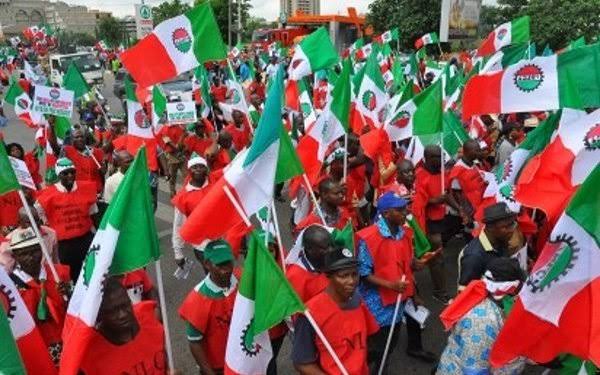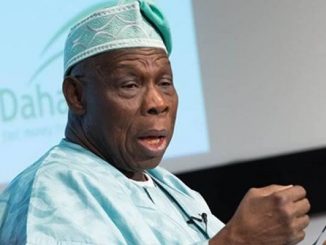
By Marvellous Nyang
June 4, 2024
Nigeria’s premier labour unions, the Nigerian Labour Congress (NLC) and the Trade Union Congress (TUC), temporarily halted their indefinite strike on Tuesday, extending an olive branch to the government for further discussions regarding a revised minimum wage.
This decision comes in the wake of President Bola Tinubu’s economic reforms in the West African nation that have catalysed a surge in inflation, exacerbating the nation’s cost of living predicament.
The NLC and TUC wielded their collective might on Monday, orchestrating a nationwide shutdown by disrupting the national grid and grounding flights across the country.
Their actions were a resolute response to the government’s failure to reach consensus on a new minimum wage.
Late on Monday, amidst mounting tensions, representatives from both the unions and the government convened for talks.
While the government expressed a willingness to entertain a higher monthly minimum wage beyond the proposed 60,000 naira ($41.38), a concrete figure is yet to materialise.
Festus Osifo, president of the TUC, announced the pivotal decision following an extraordinary meeting on Tuesday, saying, “After an extraordinary … meeting today, it was decided that the ongoing strike be suspended for the next one week and we will continue negotiation with the government … on minimum wage,” he affirmed.
ALSO READ: TCN blames national blackout on Labour as strike grounds activities across sectors
Labour leaders, in consultation with their constituents, have extended a week-long ‘grace’ period to the government to formulate an acceptable minimum wage proposal.
Pressure mounts on President Bola Tinubu to reconsider the contentious decision to abolish a popular petrol subsidy, a move aimed at sustaining low fuel prices but bearing a heavy toll on government coffers.
Meanwhile, the Nigeria Union of Petroleum and Natural Gas Workers (NUPENG) maintains a cautious stance, refraining from recalling workers from offshore rigs pending the outcome of Tuesday’s negotiations between the government and labour.
NUPENG’s pivotal role in representing workers across the oil and gas sectors, including upstream oil platform workers, fuel tanker drivers, and pump attendants, underscores the gravity of its decision, which holds the potential to escalate the ongoing dispute between the unions and the government.
Nigeria, renowned as Africa’s leading oil producer, heavily relies on oil and gas revenues, which constitute approximately 90% of foreign exchange earnings and half of its budgetary allocations.




